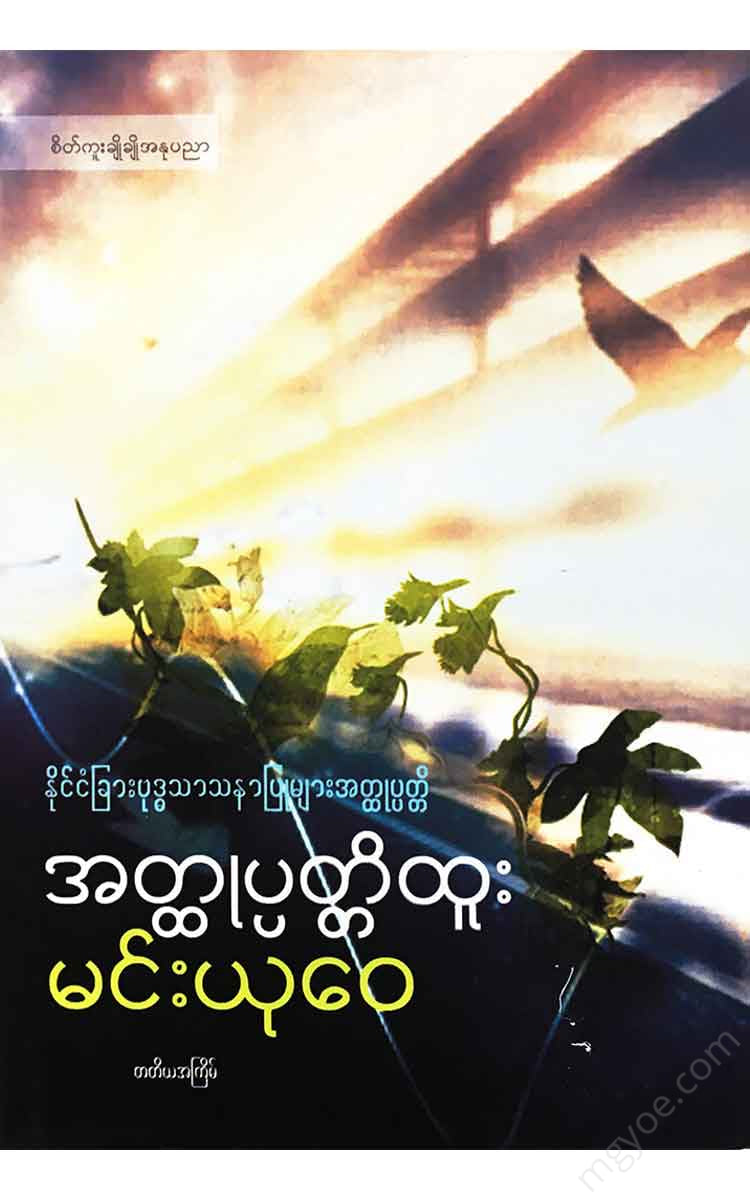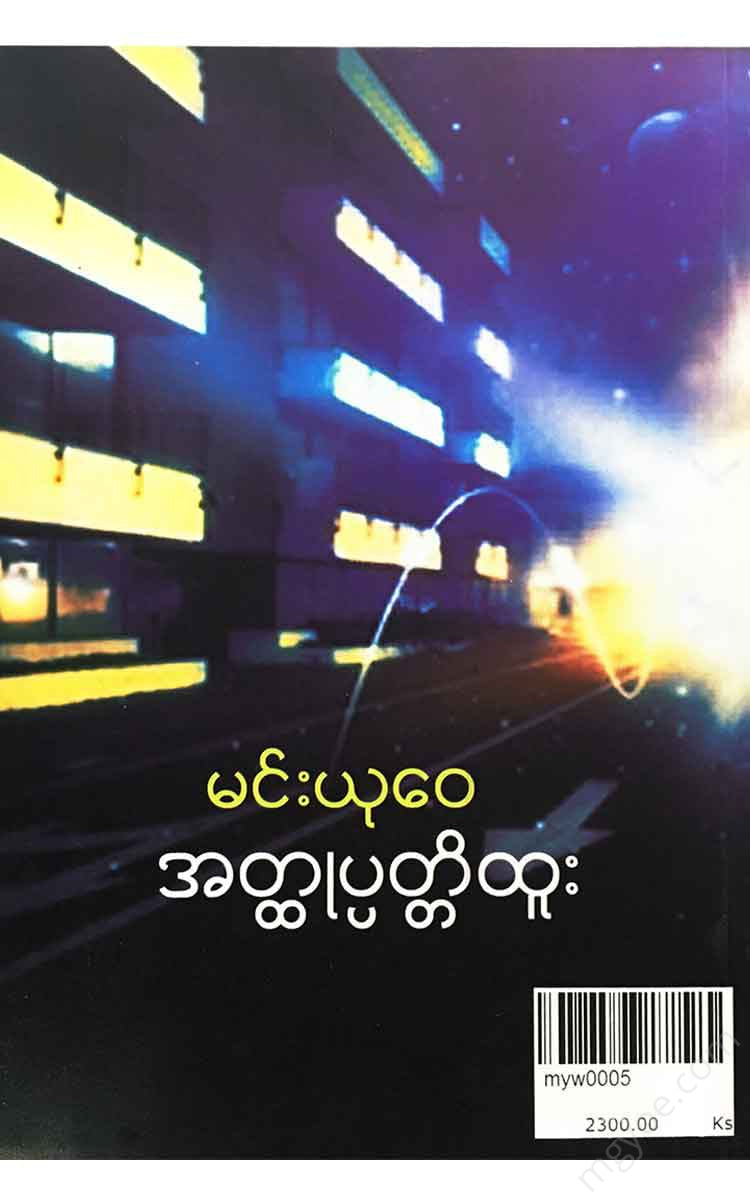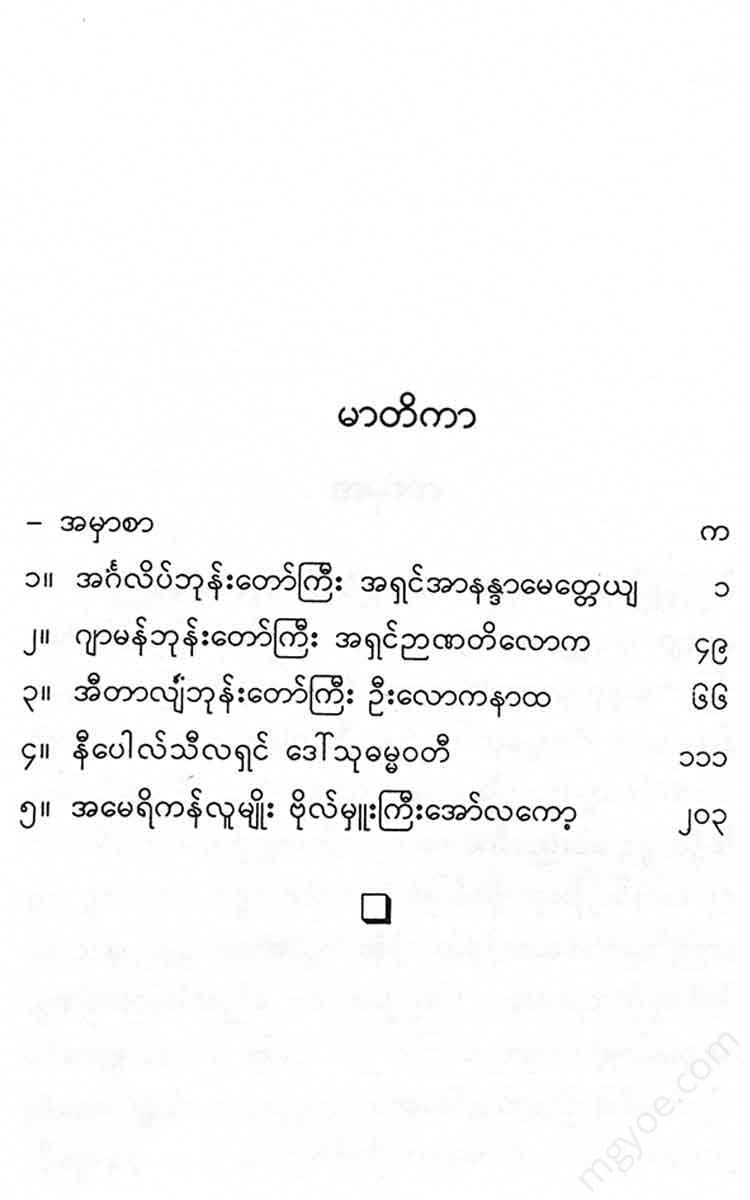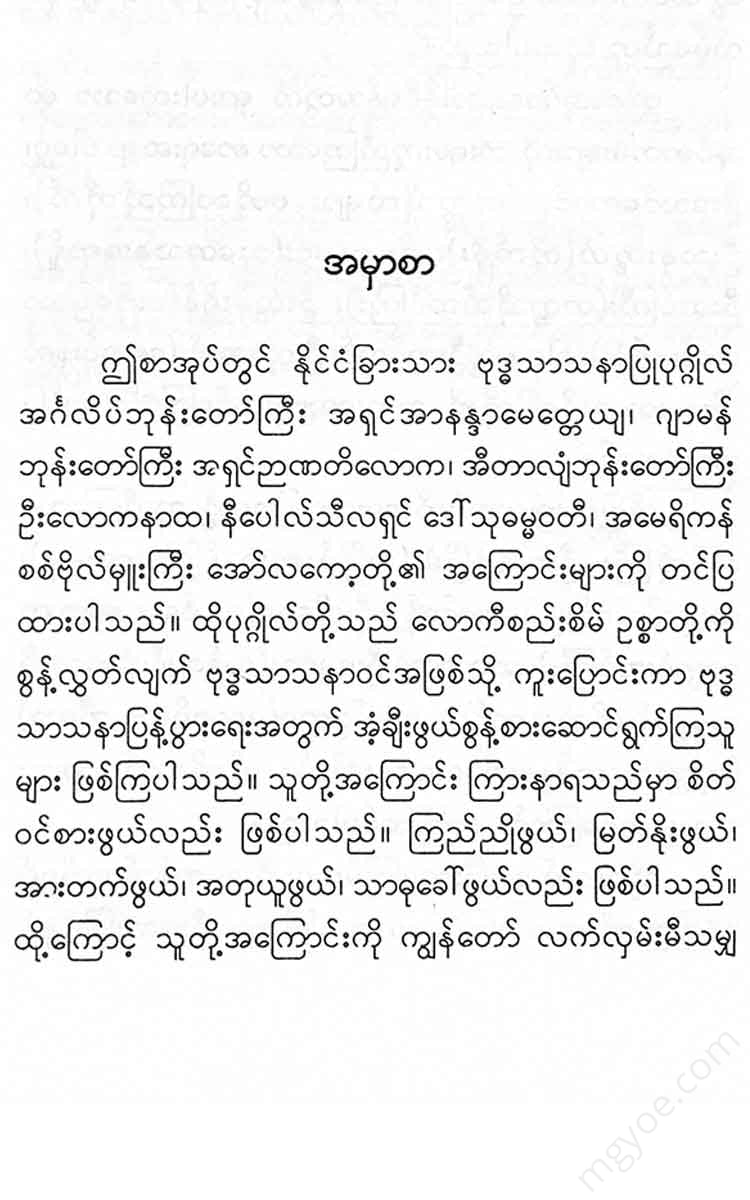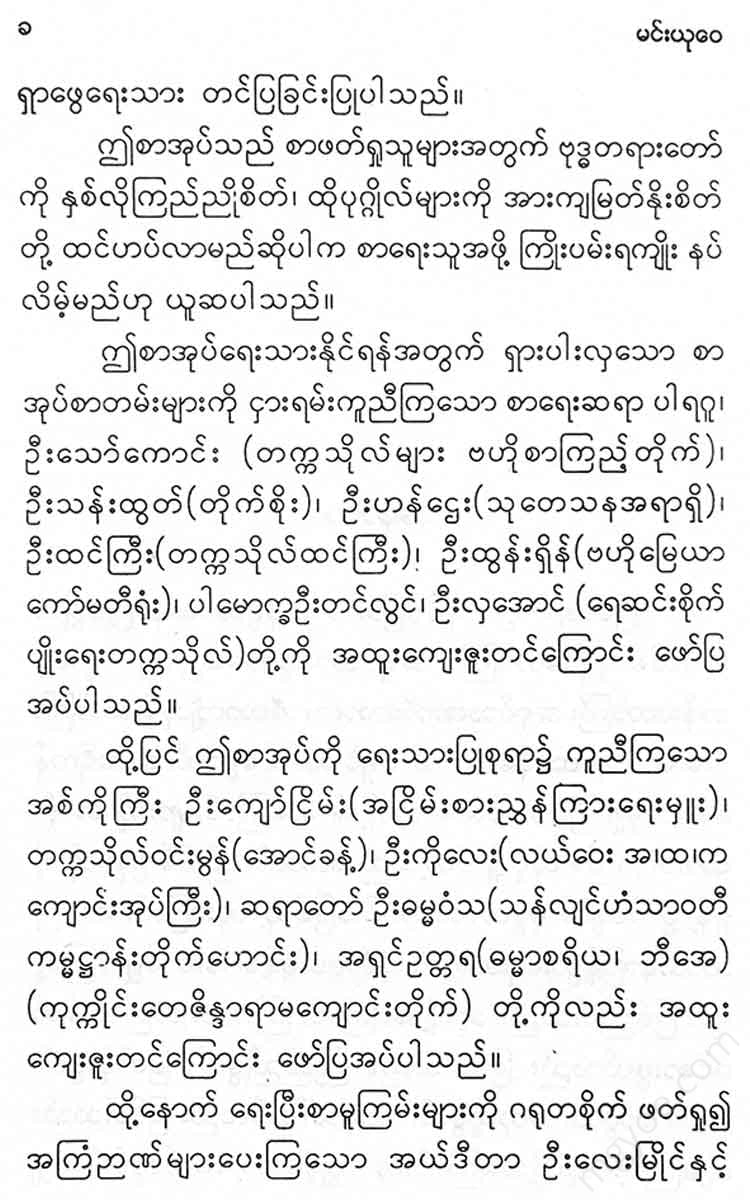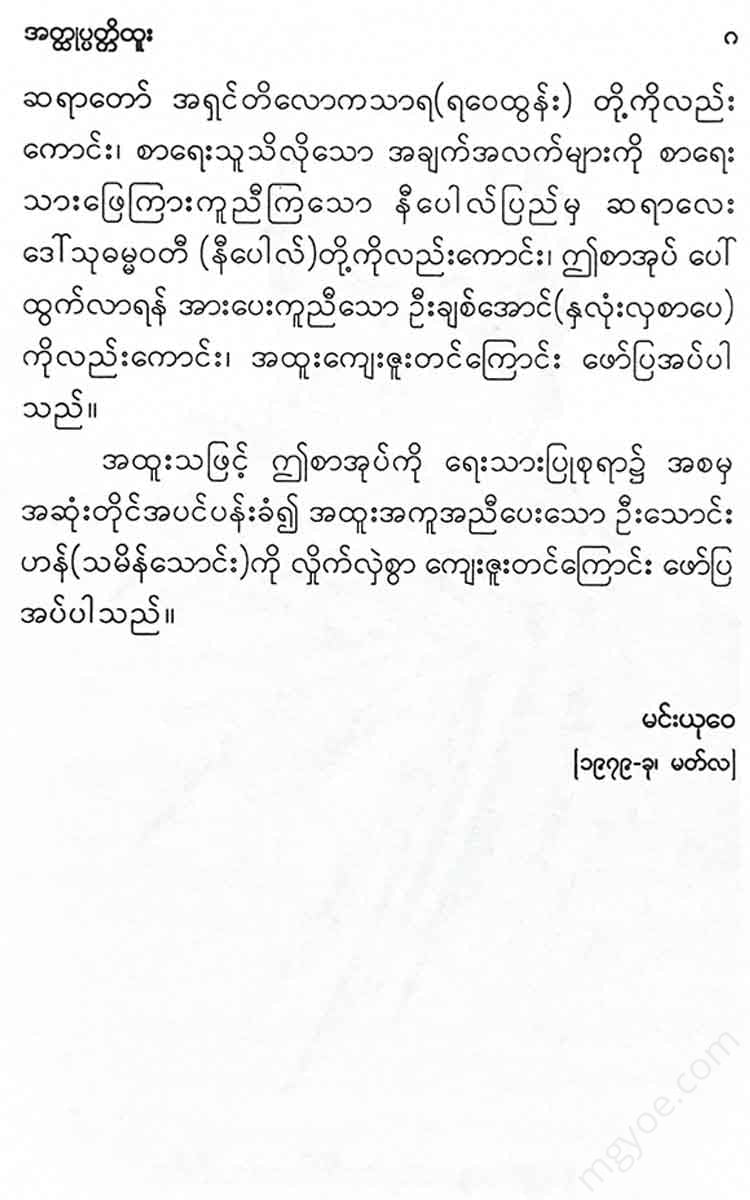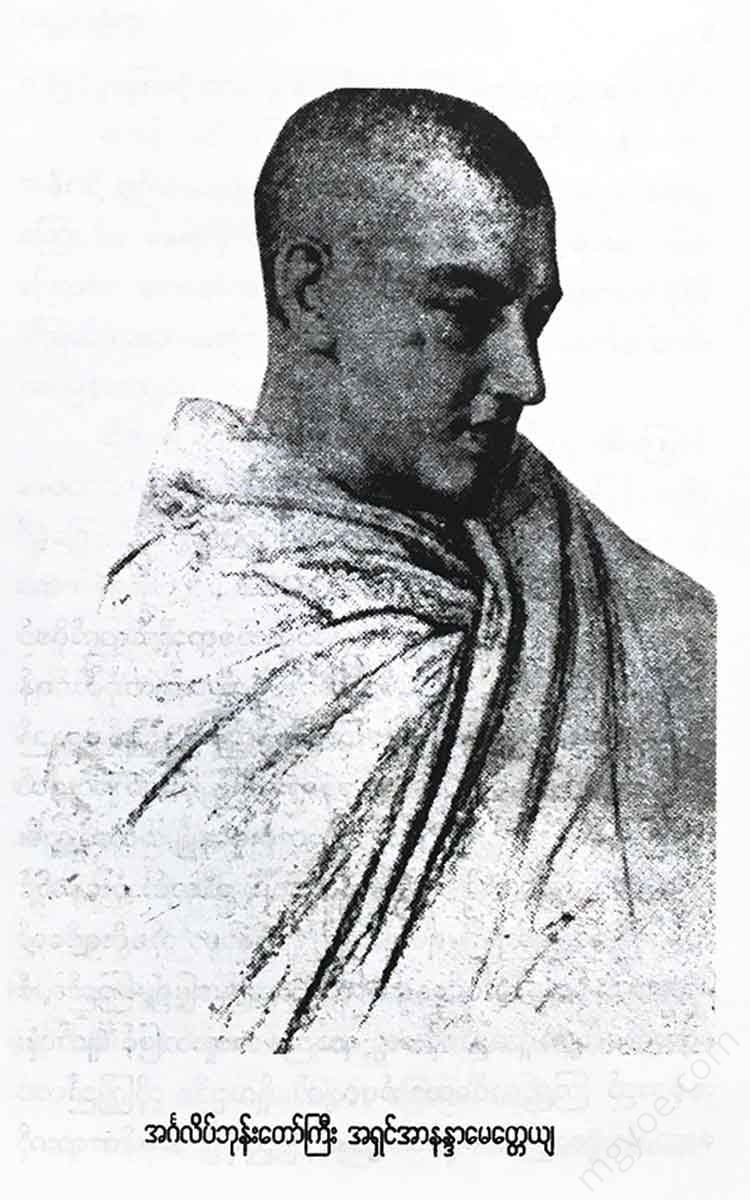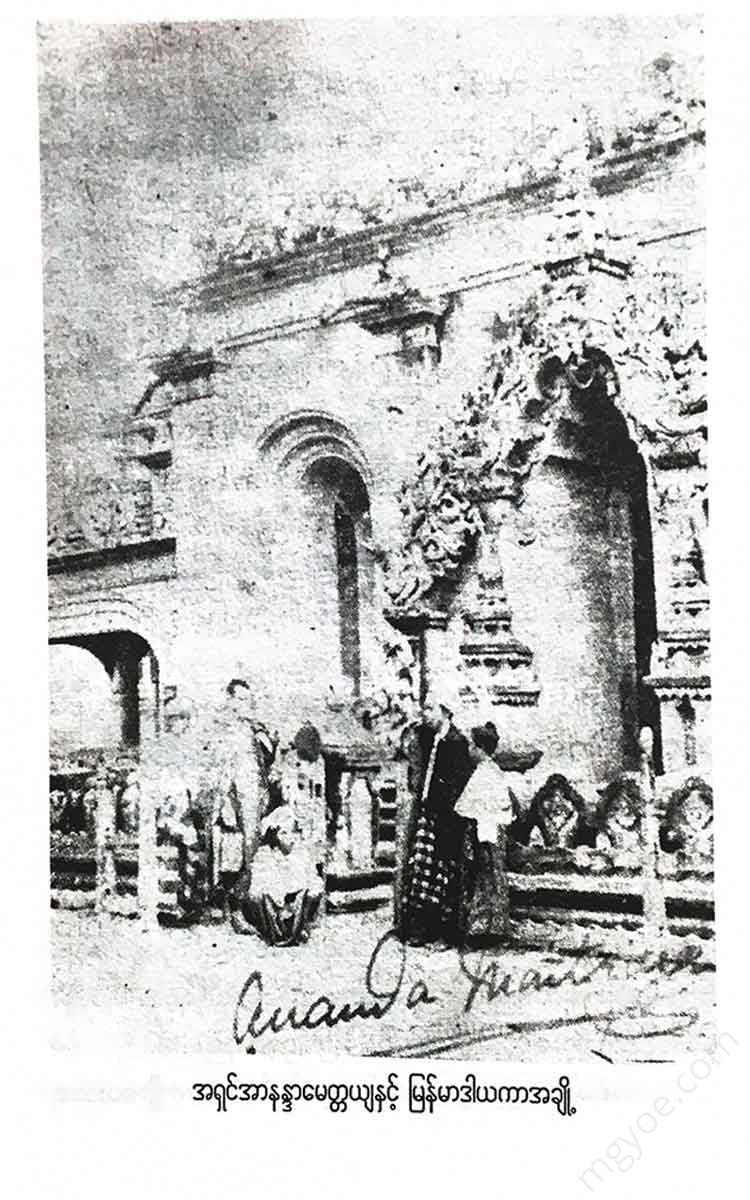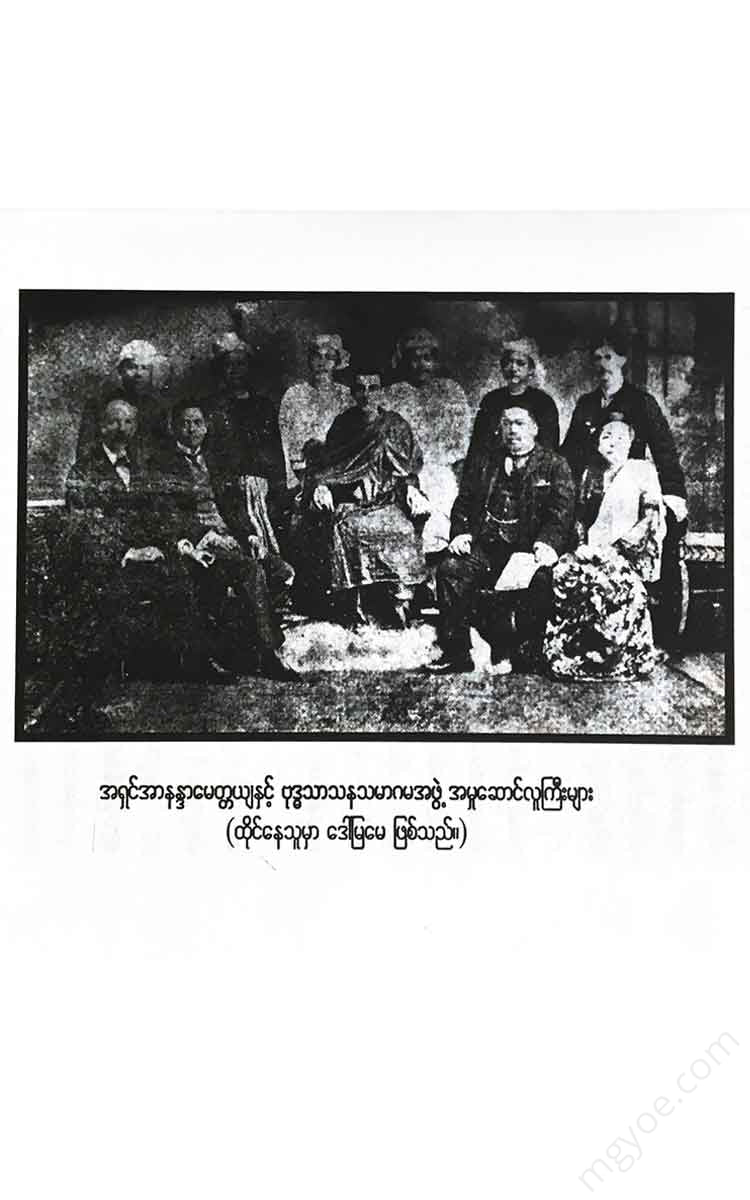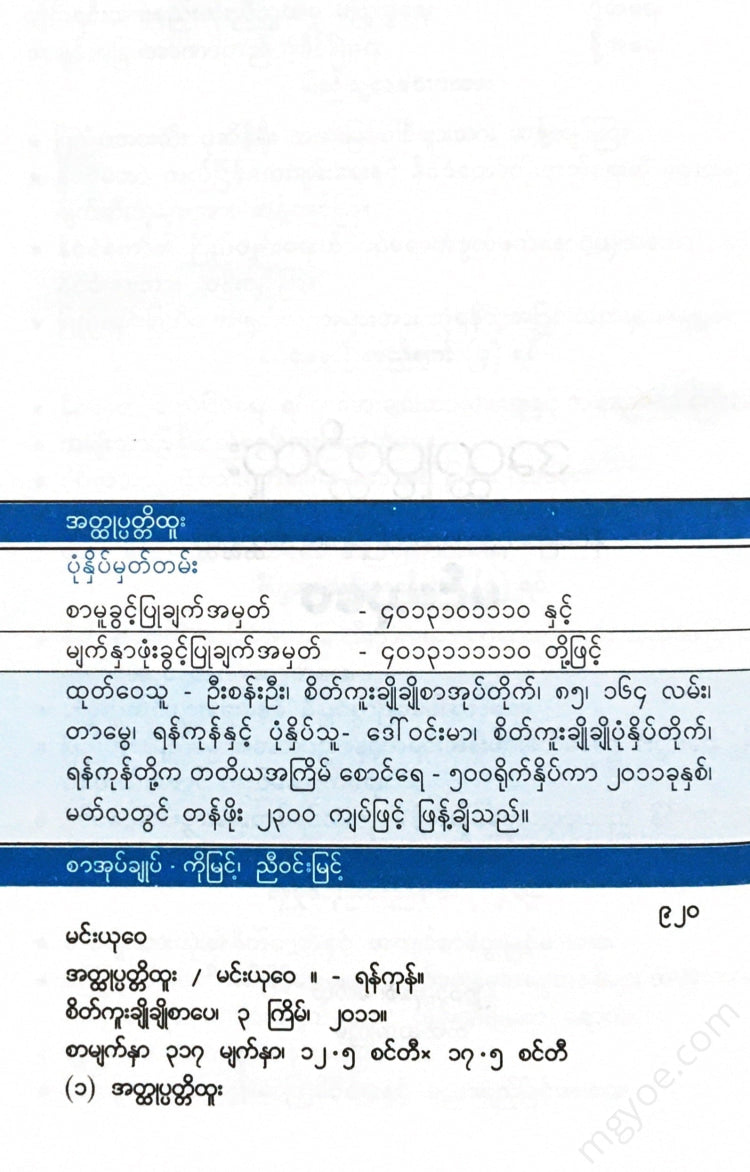စိတ်ကူးချိုချိုစာပေ
Min Yu Wai - At Kap Pat Ti Htoo
Min Yu Wai - At Kap Pat Ti Htoo
Couldn't load pickup availability
“Once, when I was in a Burmese village, I went with my fellow monks to a cemetery to pay my respects to a deceased person. At that time, I saw a small bamboo hut near the cremation ground. When I looked inside from the window of the hut, I saw an old monk sitting there. The old monk’s face, although it looked old, was calm and clear. His eyes were especially clear. I thought that this clear light was a reflection of his virtue and his clear vision, especially his clear perception.
Because of the venerable appearance of the old monk, I approached him and asked him why he was staying here, saying that this cemetery was far from the village, that it was a place where the dead were burned, that it was full of dangers and was disgusting.
Then the old monk said that in his youth, as a layman, he had been very angry and quick-tempered, and that because of this, he often quarreled and got into trouble. One day, he had a desire to review his life and improve it. So he approached a monk and told him his desire. Then the monk said, “In this world, fools do not know that we will die. Because of this ignorance, quarrels and disputes cannot be resolved. In this world, wise people know that we will die. Because of this knowledge, quarrels and disputes can be resolved.” He recited a teaching from the Pali Canon, the Buddha’s teaching. He immediately became aware of this and became a monk.
Sometimes, people, due to their meritorious deeds, could immediately understand the truth by just hearing a few words from the Buddha's teachings. Just as a lamp brings light into a dark room, even a single verse of the Buddha's mantra could illuminate people's minds. Then, as if they had entered a new life, they became new people with a new mind.
The words "We will die" are as simple and clear as they are profound. They are full of meaning. The value of these words cannot be understood by ordinary understanding. Only those who have attained enlightenment in the innermost being of the mind can understand them.
This is the kind of insight that the young monk who would become an old monk realized. Having realized this, he boldly transitioned to the noble life of a monk. He tried to eliminate his anger. Isn’t it true that a drop of water that falls over time can fill a water pot? Similarly, the young monk gradually eliminated his anger, and he was able to eliminate it to a certain extent. However, he could not completely eliminate it. So he often visited the cemetery to experience more of the Dhamma that he had previously experienced. He meditated on the Dhamma. From this visit, he became determined to live and meditate on the Dhamma forever. Finally, in fulfillment of his wish, the villagers built a small monastery and donated it to him, and he was allowed to live there forever. He meditated on the Dhamma of death every day and was able to further explore the Dhamma. He also taught the Dhamma that he had discovered to his disciples and pointed out the truth. All the villagers said that the old monk had found the Dhamma and was a man of great merit. I also thought the same.
The above is an excerpt from a paper written by the English Buddhist monk Ananda Meitei. Ananda Meitei has written about his own experiences after living in Burma for many years. He says: Once a person realizes the truth, he abandons what many consider valuable and follows the truth.
This is how you can continue to pick up and follow.
“Truth is very important in human life. Once a person realizes the truth, they abandon everything that many people consider valuable and follow the truth. People do not understand the reason for this. Therefore, in my country (England), many people do not understand the reason for the Buddha’s conversion to monks. In their view, becoming a Buddhist monk is useless for human life, they do not fulfill their responsibilities to the world and their wives and children, and they are free from themselves. I do not want to blame them for thinking this way. It is because they do not see the truth as the old monk did.”
This statement seems to partly indicate why he renounced worldly affairs at a young age and took up the Buddhist monastic life.
In countries where Buddhism is flourishing, such as Burma, Sri Lanka, and Thailand, people would understand the idea of giving up worldly possessions and becoming a monk. However, in a country where Buddhism is not yet flourishing, such as England, it would be impossible to understand the idea of becoming a Buddhist monk. Especially when Venerable Ananda Meitei entered the monkhood, his fellow citizens would have been even more incomprehensible. This is because Venerable Ananda Meitei was one of the first Englishmen to take the risk of becoming a Buddhist monk.
Therefore, his relatives and friends forbade him from becoming a monk. Despite all the prohibitions, he renounced not only worldly wealth but also his parents and relatives and became a monk. In other words, it can be said that he courageously followed the truth because he had realized it.
During the Buddha's lifetime, there were also cases of difficult conversions to the Buddhist order. Venerable Ratthapalama Thera and Venerable Matsumedha Thera are prominent examples of those who had to convert to Buddhism with difficulty.
Ratthapala was the only son of a wealthy man. He was still young in life. Millions of rupees worth of gold and silver, buildings and agricultural goods were ready for Ratthapala to inherit. Despite living in such a wealthy life, Ratthapala renounced all his wealth and became a monk when he heard about the Buddha's teachings.
It was not easy to become a monk. He had to earn the right to become a monk at the cost of his life. His parents, a wealthy couple, asked for permission to become a monk, but they refused. They repeatedly forbade him. Since only one person, Ratthapala, could inherit his vast wealth, he could not be allowed to become a monk.
Then Ratthapala stopped eating. “Even if I want to die, I will die. I will not eat until I am allowed to become a monk,” he said, and remained silent. At this point, the rich man and his wife decided, “It is better to become a monk than to live and die. I can still see my son as a monk,” and they allowed him to become a monk.
Ratthapāla became a monk and practiced the Buddha's teachings, eventually becoming an arahant of the 1st degree, known as "Venerable Ratthapāla Thera."
Sumedha Theri was also the only daughter of a king. She was not only young but also beautiful in appearance. She was well-mannered. She was full of insight and knowledge. She was the subject of marriage proposals not only from her own country but also from other countries, including princes and kings.
Princess Sumedha was a woman who was so full of worldly pleasures that she could say she had everything she wanted. However, she heard the Buddha's teachings through monks, and she wanted to enter the religious order. She wanted to practice the Buddha's teachings as a nun. She no longer had any desire for wealth or power.
However, her father and mother did not allow her to become a monk. They wanted her to inherit the magnificent royal throne. When she repeatedly asked for permission to become a monk, Princess Sumedha cut off her own hair. She vowed that if she was not allowed to become a monk, she would stop eating and die. Only then did her mother and father relent and allow her to become a monk.
